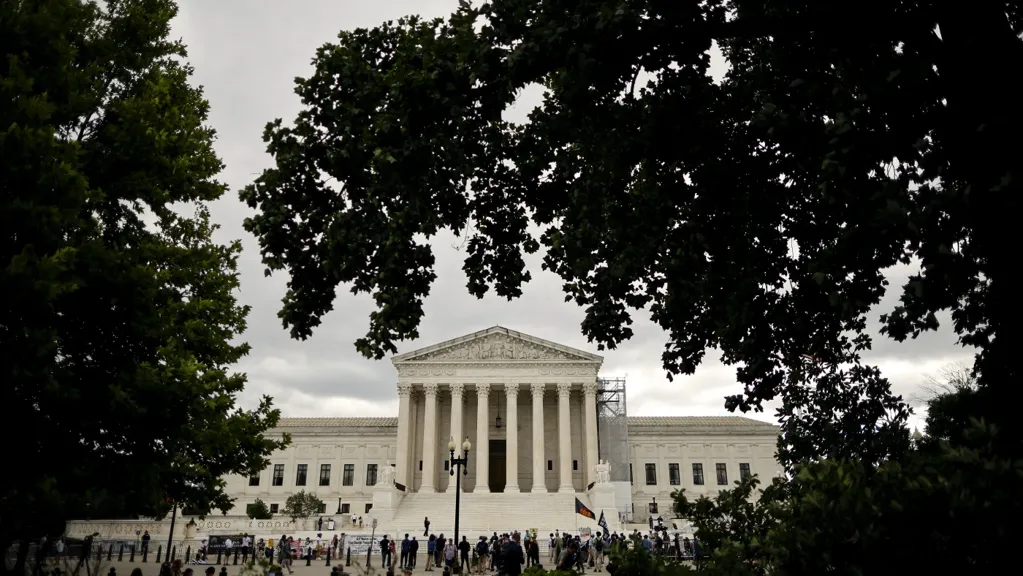Today, the Supreme Court, by a 6-to-3 vote, gave President Trump the power to fire key federal agency members. This is contrary to a 90-year Supreme Court precedent. NPR's Nina Totenberg is here in the studio to explain. Hey, Nina.
TOTENBERG: Big - the decision is technically a temporary one, but its tone is pretty final. And it's exactly in the direction the conservative court has been going in recent years. What's more, it all but outright reverses the unanimous decision of the court 90 years ago, holding that a president - then it was FDR - cannot fire agency leaders just because they disagree with those agency leaders' views and because these are agencies created by Congress to be bipartisan and independent. Now comes this order that clearly forecasts the eventual outcome of the case when and if it is argued before the court, likely next year.
KELLY: You just described the tone of this as pretty final. Give me an example. What does that mean?
TOTENBERG: Well, for example, the Federal Reserve is carved out. The idea that the president could fire members of the Federal Reserve just like he fires other - can fire other agency heads, according to this point of view, has - well, that point of view has completely spooked the markets, and it’s what’s always been the fly in the ointment of those who want to corral federal agencies and make all commissions, like the SEC, the FTC, subject to firing at will by the president. So here we are, in a two-page order, with the court basically insulating the Federal Reserve, saying that’s not - they’re different.
KELLY: Yeah. The justices who are not on board with this, the dissenters, what are they saying?
TOTENBERG: Well, those would be the three liberal justices, and they were pretty mad. Justice Kagan, speaking for them, quoted Alexander Hamilton as saying, to avoid an arbitrary discretion in the courts, it is indispensable that they should be bound down by strict rules and precedents. Today’s order, she said, favors the president over our precedent. And, she added, it does this unrestrained by the rules of briefing and argument and the passage of time needed to discipline our decision-making. I would deny the president’s application, she said. I would do so based on the will of Congress, this court’s seminal decision approving independent agencies’ for-cause protections and the ensuing 90 years of precedent.
KELLY: OK. In a separate court order today - busy day for the court - they were deadlocked. This was a big religion case. Tell me about that.
TOTENBERG: Well, by a tie vote, the court effectively blocked the creation of the nation’s first religious charter school in Oklahoma, leaving in place a state Supreme Court ruling that barred the establishment of overly - overtly religious charter schools funded by the taxpayers.
KELLY: And a tie vote, so 4 to 4, Nina - I mean, it wasn’t actually a decision.
TOTENBERG: That’s correct. A tie vote means only that the lower court decision - here, the state Supreme Court ruling - remains in place. And that decision said that establishing religious public charter schools would violate both the state and federal constitutions as well as the federal law that helped create public charter schools.
KELLY: Out of curiosity, which of the nine justices did not participate?
TOTENBERG: Justice Amy Coney Barrett recused herself for undisclosed reasons.
KELLY: And the other eight who did vote, do we know how they voted?
TOTENBERG: No, we don’t know, but I think it’s reasonable, based on the oral arguments just a few weeks ago, to conclude that Chief Justice Roberts was the fourth vote against religious charter schools along with the three liberals and that the remaining conservatives—Justices Thomas, Alito, Gorsuch and Kavanaugh—voted the other way to allow religious public charter schools.
NPR's Nina Totenberg wrapping up a lot of things happening at the Supreme Court today. Nina, thank you.
Accuracy and availability of NPR transcripts may vary. Transcript text may be revised to correct errors or match updates to audio. Audio on npr.org may be edited after its original broadcast or publication. The authoritative record of NPR's programming is the audio record.
